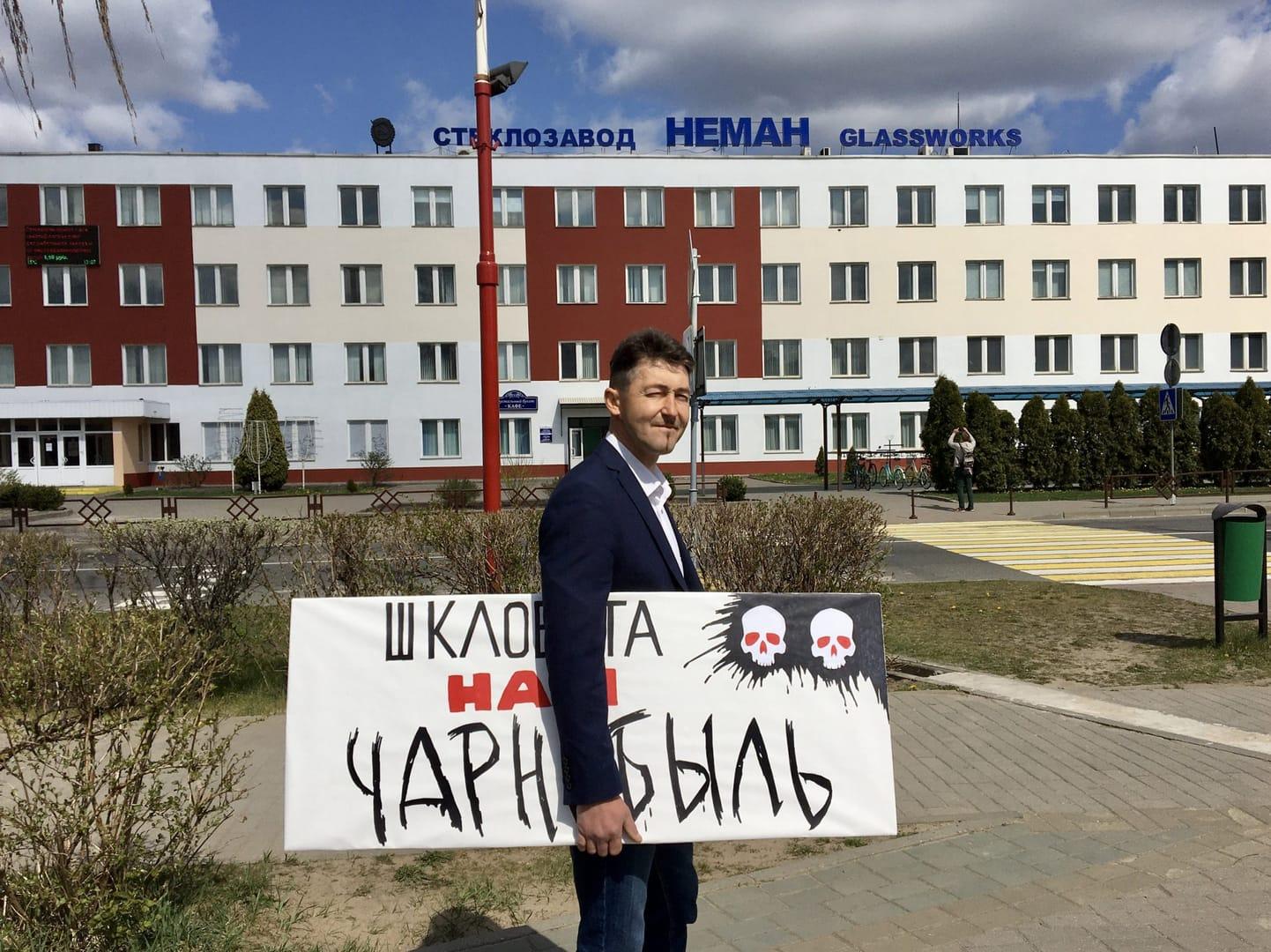Human rights activists in Belarus have urged the Catholic Church to speak in defense of detained citizens, after a prominent Catholic protester was sentenced at a closed trial and died in jail.
“The deaths of innocent people are being provoked by secret trials, which deprive political prisoners of their right to a fair hearing and hand out disproportionate, ruthless sentences,” said the ecumenical Christian Vision organization.
“We call on the Catholic Church leadership to make every possible diplomatic effort to secure for believing political prisoners a chance to meet with clergy and obtain religious press and literature, and the earliest release of innocent people.”
The statement was issued May 22 after the unexplained death of Vitold Ashurak at a penal colony in Shklou.
Christian Vision said Ashurak, a Catholic human rights campaigner from Lida, was jailed for five years in January after participating in protests and rosary prayers. He was recognized as a political prisoner by 11 separate human rights groups.
In a May 26 statement for Catholic News Service, Christian Vision said Ashurak had spent his final days in isolation without access to medical personnel. It added that his bandaged body had shown “marks of trauma and wounding” when handed over to his family May 25, five days after his death. It said his death certificate had marked his cause of death as “unknown.”
News of Ashurak’s death coincided with international condemnation of the May 23 forced landing in Minsk of a Ryanair commercial airliner, traveling from Greece to Lithuania, and the arrest of journalist Roman Protasevich.
However, in an interview with Catholic News Service, Father Yuri Sanko, spokesman for the Belarusian bishops’ conference, said the church had not sought information about Ashurak’s death and would not be commenting on it or on the detention of Protasevich.
“This is a purely political matter and we see no need to speak about it,” Sanko said May 25. “Nor do we want to take the place of politicians in addressing what was clearly a misunderstanding. We must hope objectivity is shown in sorting out these problems.”
“As long as there’s no arrangement between the church and police, we cannot gain access” to prisoners, he added. Sanko said work had been suspended on a general agreement, but “nothing is happening, since it isn’t seen as a priority.”
Father Vyacheslav Barok, who was jailed in Vitebsk in November for an “unauthorized event,” said in a May 21 Facebook post, “Why is the church silent — and why do political prisoners preach more loudly than our own clergy?”
“We are not the first to encounter a state system that, through authoritarian management, has moved away from law and justice, forgotten human rights and begun building fascism. … Maybe it’s time for the Catholic Church in Belarus to ask the Vatican and pope how we should preach today to end this war and these pointless deaths.”
In April, Kaciaryna Laurynenka, a Catholic theologian and historian, told Catholic News Service, “Bishops and priests are under pressure not to speak out about human rights, and many believe this follows Vatican recommendations.”
European Union governments imposed new sanctions May 24 on the government of President Alexander Lukashenko, who signed a law that prohibits all unauthorized mass gatherings and outlaws the collection of funds for those facing prosecution. It also bans media coverage of illegal events, unofficial opinion polls and information “which could harm the national interest.”
Lukashenko’s declaration that he was reelected with 80 percent of votes in disputed August elections, after 26 years in power, triggered mass protests and harsh police reactions. Catholic leaders spoke out, and Archbishop Tadeusz Kondrusiewicz spent four months in exile before his return was negotiated by Vatican diplomats.
In a Facebook post, Auxiliary Bishop Yury Kasabutski of Minsk-Mohilev said curial offices adjoining the Minsk cathedral were attacked with bricks May 19, wrecking the entrance and a church car. He said the incident occurred a day after he had publicly defended Tut.By, an independent news outlet closed on government orders.
“I’m touched people of different faiths, nationalities and viewpoints have voiced support — our strength is in unity,” the bishop added.
“I encourage you to pray for those most needing God’s grace to endure trials — I myself was, am and will remain against violence, bullying, torture, repression and lies.”
Sanko told CNS that police so far had not investigated the attack on the curia, which is overlooked by cameras on a nearby building.















